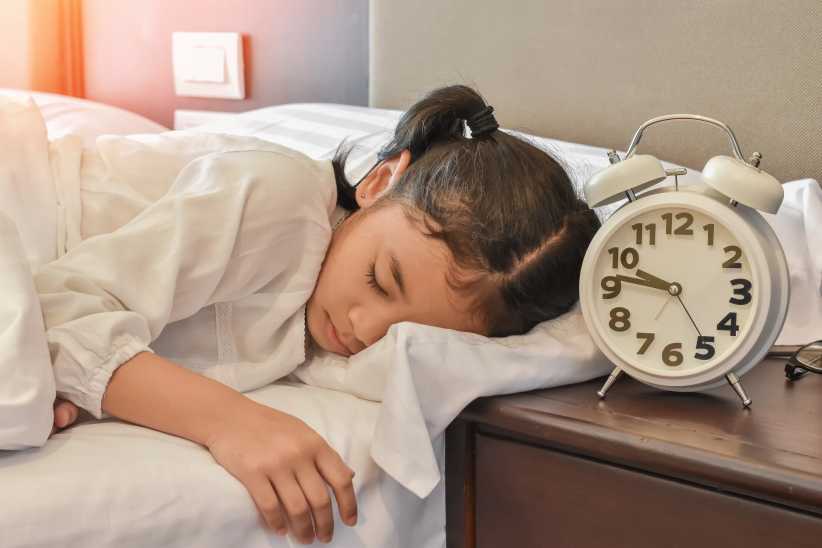
Summer Isn’t a Break for Working Parents: Here’s What to Do About It
For many kids, summer may mean sleeping in, lazy mornings and no homework. But for parents, especially those balancing full-time jobs, it can be stressful and chaotic, as you feel you’re not giving your kids or job the attention they each need.
According to the latest Modern Family Index from Bright Horizons, conducted by The Harris Poll, working parents are feeling stretched thinner than ever during the summer months. The national survey reveals what many New York City families already know: when school’s out, the pressure on parents ramps up significantly.
Psst… Check Out New York City Summer Bucket List for Families and Kids 2025
The Hidden Toll of Summer
This year’s research shows that 87% of working parents experience challenges when their children are home for the summer. From juggling work interruptions to constantly wondering what the kids are up to, parents end up multitasking more than relaxing.
- 33% report more workday interruptions, like texts from home or the stress of managing kids in the background of Zoom meetings.
- 30% say they take more time off, either to drive children to activities or provide full-time care when camps or sitters fall through.
- Understandably, nearly 7 in 10 say summer feels like a break for everyone but them.
It’s not just about juggling logistics; it’s also the emotional toll. 42% of working parents say the stress is actually worse in the summer than during the school year.
Kids Need Structure… and So Do Parents
Consider this: with school out, NYC parents are suddenly on the hook for curating nearly two and a half months of daily activities. And then there is the pressure of doing enough. 66% of parents believe their children’s brains will “rot” without the right planning, and 86% say their kids need a solid routine during the break.
The study makes it clear that working parents need support. 76% of respondents said they wish their employers offered more help when it comes to reliable summer schedules. Claire Goss, Senior Manager of Parenting Education at Bright Horizons, points out that parents need more than just sympathy from employers; they need tangible solutions like flexible work hours or subsidized camps to prevent the summer from becoming a season of burnout.
We asked Claire to share her advice to help working parents survive the summer.
What’s the biggest headache for parents trying to work while their kids are home for the summer?
While having children at home may mean more time to connect and spend as a family, many parents—especially working parents—are challenged to find ways to keep kids busy and engaged, usually filling their free time with camps and other activities. Curating kids’ schedules, however, requires significant upfront work to find age-appropriate programs that align with their children’s interests and schedules.
In a recent Modern Family Index survey, 87% of working parents said they experience challenges or disruptions during the summer. They more frequently need to step away during the day to check on their kids, respond to calls and messages, or leave work early to pick them up from activities.
How much does having a reliable summer schedule for the kids help parents actually get work done?
A reliable schedule isn’t just nice to have—it’s essential. In our survey, 76% of working parents said their ability to focus at work during the summer is directly tied to how reliable their children’s schedules are. When children have structure and consistency, it removes the guesswork and guilt that so many parents experience. It creates breathing room, both mentally and logistically, so parents can be present and productive in their jobs during the workday.
And it’s not just about productivity. Structured schedules also give kids stability during an unstructured season and help prevent summer slide. It mirrors the kind of consistency they’re used to in the classroom, which helps them feel more engaged, and that benefits the whole family.
Do you have any tips for handling those constant interruptions from kids during the workday?
First, know that you’re not alone. One in three working parents report more frequent interruptions during the summer, and those constant “just one quick question” moments add up.
One helpful strategy is to give kids their own summer schedule or checklist filled with fun, age-appropriate activities. This gives them structure, even when you’re not hands-on, and helps foster a sense of independence. Tangible, visual routines are especially helpful, offering kids a clear path through their day and reducing the need to come to you for what to do next.
Think of it as a parallel workday – you’re both focused and productive, just in different ways. By mirroring the kind of organized routines children are used to in the classroom, you can create a home environment where everyone feels more supported, even on the busiest summer days.
Other tips parents can consider include: creating a positive, easy chore experience for their kids during the day, having open-ended materials available for times when boredom might arise, setting clear do-not-disturb times with a signal system to note when you can’t be disturbed, and setting aside an hour at the end of the day to set your evening up for success.
How can parents keep kids on a routine during summer without making their own workday more stressful?
Keeping kids on a routine doesn’t mean micromanaging every hour. It’s more about setting routines that work for your family and support everyone’s needs. We know 86% of parents want their children to have structure during the summer, and for good reason: kids thrive when they know what to expect.
If you’re working from home, consider co-creating a daily plan with your child so they feel ownership, and you feel less pressure to entertain constantly. Another avenue is looking into high-quality and reliable summer programs like camps or other hands-on learning experiences.
What would you say to parents who feel like summer is more hectic than relaxing?
You’re not imagining it. For many working parents, summer feels like a break for everyone but them. Nearly half (42%) also say the mental and emotional strain is worse in the summer, meaning they’re not getting much R&R.
The truth is, without reliable care or structured plans, summer often becomes a patchwork of thrown-together solutions, and that can take a real toll on both parents and kids. If that sounds familiar, it’s okay to acknowledge the stress and look for resources that can help, whether that’s employer-sponsored childcare, summer camps, or simply carving out time to plan ahead.
You deserve a summer that works for you, too—one where your children are engaged and thriving, and you can continue to be productive in your day job at the same time.













